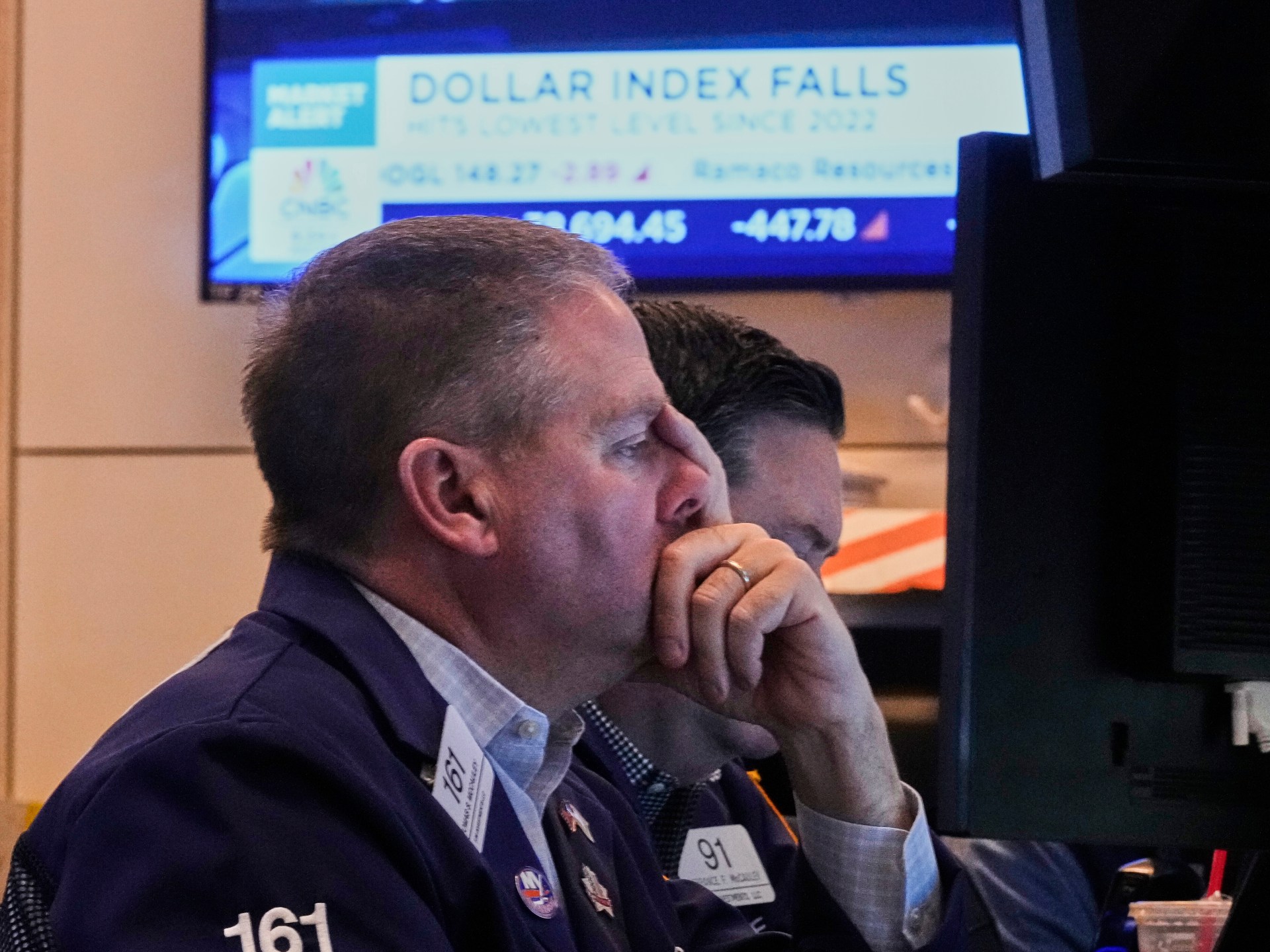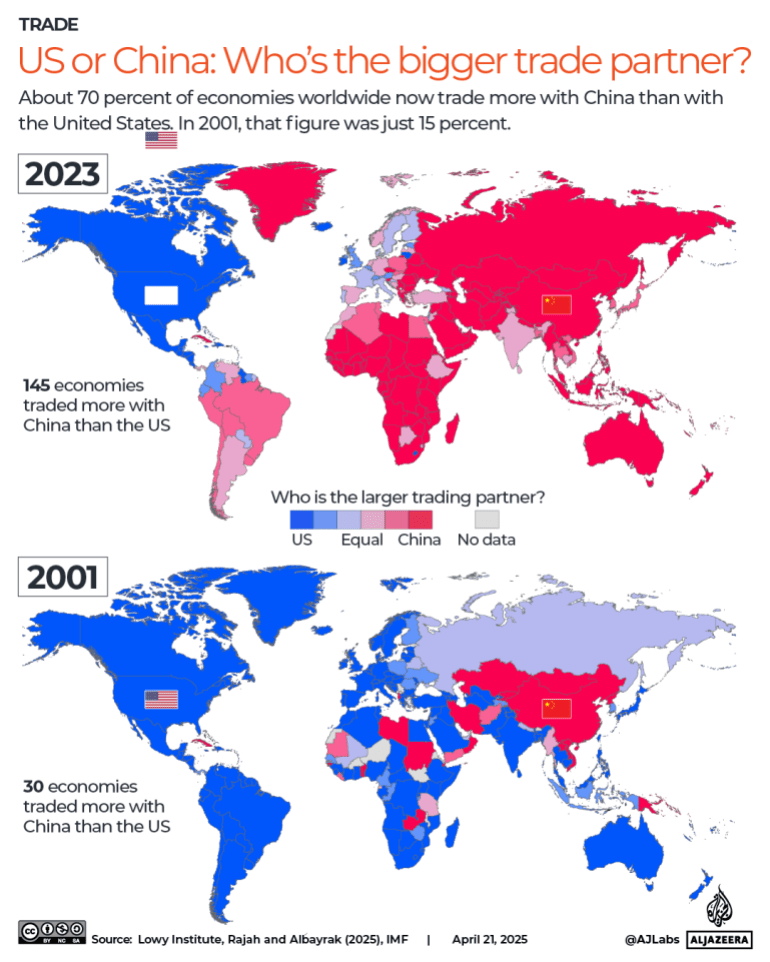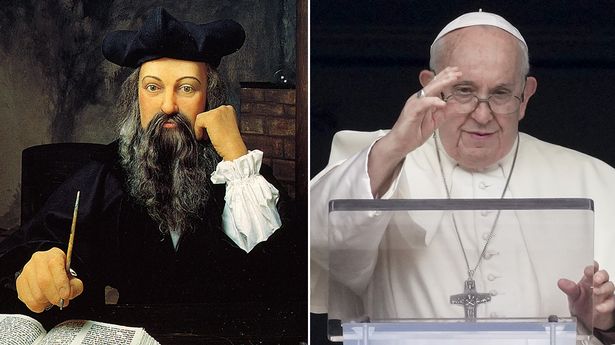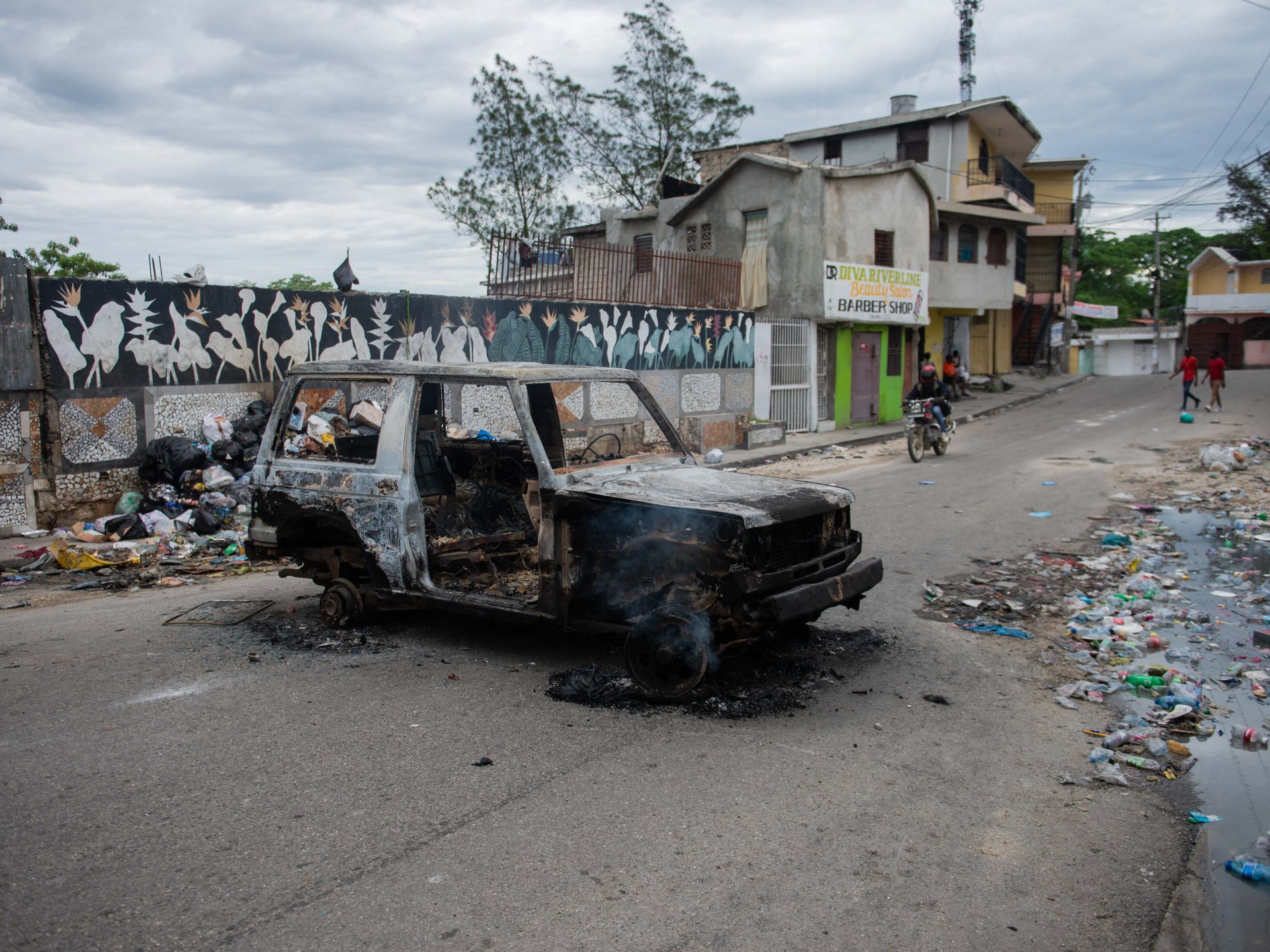US stocks and the dollar have dropped sharply as United States President Donald Trump’s attacks on the chief of the US central bank shake investors’ confidence in the world’s top economy.
The benchmark S& P 500 fell 2. 36 percent on Monday, one of the steepest one-day declines of the year.
The tech-heavy Nasdaq Composite tumbled 2. 55 percent, dragging the index down nearly 18 percent from its position at the start of the year.
The dollar fell to a three-year low, at one point weakening to 97. 923 against a basket of major currencies.
US government bonds also fell as investors sold off the traditional safe-haven assets, with the yield on 10-year Treasury notes rising above 4. 4 percent.
Asian markets opened broadly lower on Tuesday, with Japan’s Nikkei 225, Hong Kong’s Hang Seng Index and Taiwan’s TAIEX down about 0. 8 percent, 0. 6 percent and 0. 5 percent, respectively, as of 02:00 GMT.
The steep losses came as Trump renewed his attacks on US Federal Reserve Chair Jerome Powell, branding the central bank boss a “major loser” and “Mr Too Late” on social media for not moving faster to cut interest rates.
Trump has repeatedly threatened to replace Powell, saying last week that his termination “cannot come fast enough”.
On Friday, Kevin Hassett, Trump’s top economic adviser, said the administration was studying the possibility of removing Powell, whose term runs until May next year.
Since announcing its most recent cut to its benchmark interest rate in December, the Federal Reserve’s policy-making committee has expressed caution about lowering rates further in the near term amid concerns that Trump’s sweeping tariffs will stoke inflation.
Powell warned in a speech last week that the tariffs could leave the US economy grappling with weak growth, rising unemployment and higher inflation all at once, putting the central bank’s dual goals of maximum employment and stable prices in “tension”.
“We know from experience in the United States and many other countries that politicians are tempted to ease monetary policy while they are in office because the initial effects are to increase growth and employment. Only later, perhaps when they have left office, does the higher inflation show up,” Joseph E Gagnon, a senior fellow at Peterson Institute for International Economics, told Al Jazeera.
“Markets understand this and are worried that President Trump may try to undo the Fed’s longstanding protection against political interference. ”
Powell, who was nominated by Trump in 2017 and tapped to serve another four-year term by former US President Joe Biden, has said he would not resign if asked and insisted that he can only be removed for malfeasance.
Under a US Supreme Court ruling handed down in 1935, the executive branch is prohibited from dismissing the heads of independent federal agencies such as the Federal Reserve except for “cause”.
The Trump administration, which has taken aim at numerous established norms, is seeking to overturn the 90-year-old precedent in a Supreme Court case related to its dismissal of the heads of the Merit Systems Protection Board and the National Labor Relations Board.
Any move to dismiss Powell would almost certainly send shockwaves through financial markets, given the more than century-old principle that the Federal Reserve should set interest rates free from political considerations.
On Monday, Austan Goolsbee, the president and chief executive officer of the Federal Reserve Bank of Chicago, warned that any effort to undermine the independence of the central bank would have negative ramifications for the economy.
“When there is interference over the long run, it’s going to mean higher inflation,” Goolsbee said in an interview with CNBC, without commenting directly on Trump’s attacks on Powell.
“It’s going to mean worse growth and higher unemployment. ”
Gagnon said the financial markets were reacting to the “greater probability of presidential interference” with the Federal Reserve.
“More generally, investors will be less interested in holding investments in the United States if they believe the Fed will not be independent in the future because that means the US economy will not perform as well in the future as in the past,” he said.












